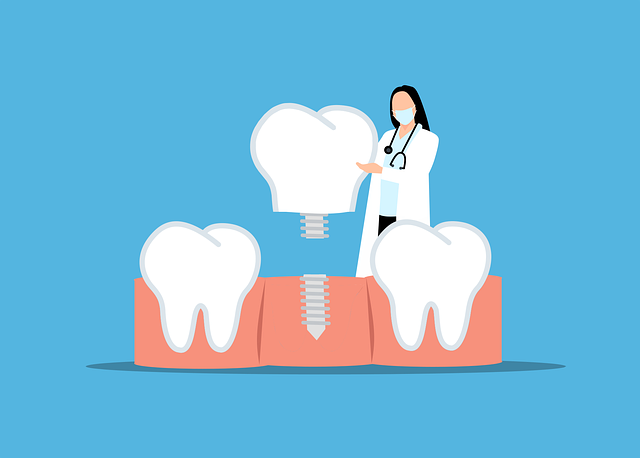Dental Crown vs Dental Implant: Which One Is Better

If you are faced with the unpleasant dilemma of what to do about a missing tooth (I speak from experience as I'm facing this myself right now), you probably find yourself trying to weigh the pros and cons of various treatment options. Two popular choices that emerge in discussions about tooth replacement are dental crowns and dental implants. Each option has its own set of advantages and considerations, making the decision between the two an important one for maintaining your oral health and restoring the aesthetics of a
complete smile. In this comprehensive guide, we will delve into the characteristics of dental crowns and dental implants, exploring their main differences, benefits, and suitability for different scenarios.
Understanding the Basics
1. Dental Crowns: A Traditional Approach
Dental crowns, also known as caps, are prosthetic devices designed to cover a tooth that's been damaged or affected by tooth decay. They are a traditional treatment option that has been used for decades to restore the structure and function of natural teeth. When a tooth is extensively damaged or weakened by decay, trauma, or a large filling, a dental crown provides a protective covering, preventing further deterioration.
Advantages of Dental Crowns:
- Conservation of Natural Tooth Structure: Dental crowns preserve the remaining healthy tooth structure while reinforcing the compromised area.
- Cost-Effective: Compared to dental implants, crowns are generally more cost-effective, making them an attractive option for those with budget constraints. (See FAQ's below.)
- Faster Treatment: The process of getting a dental crown typically involves fewer steps and is less time-consuming than implant placement. The dental office will usually even put a temporary crown in place while waiting for the permanent one to arrive.
Considerations of Traditional Crowns:
- Not Suitable for Missing Teeth: While effective for damaged or weakened teeth, traditional crowns will not work for replacing a lost tooth.
2. Dental Implants: A Modern Solution
Dental implants represent a revolutionary advancement in restorative dentistry, offering a comprehensive solution for replacing missing teeth. The implant itself consists of a small titanium post that is surgically inserted into the jaw bone, acting as an artificial root for the tooth. A prosthetic tooth, often a crown, is then affixed to the implant, creating a natural-looking and functional replacement.
SAVE 20%-60% ON ALL DENTAL WORK!
No Waiting

Advantages of Dental Implants:
- Long-Term Solution: Dental implants are renowned for their durability and longevity, often lasting a lifetime with proper care.
- Preservation of Jawbone: The titanium post of an implant stimulates the jawbone, preventing bone loss that commonly occurs when a tooth is missing.
- Aesthetically Pleasing: Implant crowns closely mimic the appearance of natural teeth, providing a seamless and aesthetically pleasing result.
Cons of Dental Implants:
- Higher Initial Cost: The cost of dental implants, which tend to have a higher upfront cost compared to dental crowns, can be a significant factor for some patients. Dental insurance plans with annual limits may only cover around 50% once you are past the waiting period and have met the yearly deductible. (See FAQ's below if a dental insurance alternative that may be the best way to help you save on this costly procedure.)
- Extended Dental Treatment Time: The process of getting a dental implant, from placement to final restoration, can take several months, requiring patience and commitment.
Choosing the Best Option
1. Missing Tooth: Addressing the Gap
When faced with a completely missing tooth, usually dental crowns don't provide a workable solutions. Dental crowns are suitable for preserving an existing tooth that may be damaged or chipped, while dental implants provide a comprehensive replacement for the entire tooth, including the root. If the goal is to address a single missing tooth, a dental implant is often considered the superior choice due to its ability to mimic the structure and function of a natural tooth more closely.
2. Oral Health: Long-Term Considerations
Maintaining optimal oral health is a primary concern when choosing between a dental crown and a dental implant. Dental crowns are placed on top of an existing tooth thereby preserving natural tooth structure and contributing to overall oral health by preventing further decay and damage. On the other hand, dental implants go a step further, actively promoting jawbone health by preventing bone resorption, a common consequence of tooth loss. In the long run a dental implants is usually the best choice because of their ability to provide a permanent solution as well as support overall oral well-being.
3. Natural Tooth vs. Artificial Tooth: Aesthetic Impact
The aesthetic outcome is a crucial factor in the decision-making process for many individuals seeking tooth replacement. Dental crowns can be color-matched to natural teeth, providing a seamless blend with the existing dentition. However, dental implants, with their lifelike appearance and the ability to integrate seamlessly with the jawbone, often surpass dental crowns in terms of aesthetic impact. The artificial tooth, supported by the titanium post, closely mimics the look and feel of a natural tooth.
4. Recovery Time: Balancing Speed and Quality
The recovery time associated with dental procedures is a significant consideration for many patients. Dental crowns generally involve a faster and less invasive process, making them an attractive option for those seeking a quicker solution. In contrast, dental implants can take a long time, including a period for the implant to integrate with the jawbone before the final restoration is placed. While the recovery time for implants is longer, the enduring benefits often make it a worthwhile investment for those prioritizing a comprehensive and long-lasting solution.
Summary
In the debate between dental crowns and dental implants, there is no one-size-fits-all answer. The best choice for you ultimately depends on your individual circumstances, priorities, and budget considerations. Dental crowns offer a reliable and cost-effective solution for damaged or weakened teeth, while dental implants excel in providing a comprehensive and long-term answer to missing teeth. To add to the mix a dental bridge is often another good option worth considering if you have a missing tooth and need to fill a space but for a variety of reasons have decided against a dental implant.
For those seeking a natural-looking tooth that is also durable, and holistic approach to tooth replacement, dental implants emerge as the better choice. Their ability to mimic the entire tooth, from root to crown, makes them a standout choice for individuals prioritizing not only aesthetics but also long-term oral health. However, the higher initial cost and extended treatment time may be factors to weigh against the numerous benefits.
Conversely, dental crowns remain a valuable and time-tested treatment option for preserving natural teeth, addressing damage, and restoring functionality. Their cost-effectiveness and quicker treatment timeline make them an attractive choice for certain situations, particularly when a full tooth replacement is not necessary.
Ultimately, consulting with a qualified dental professional is crucial for making an informed decision based on individual needs and circumstances. Whether opting for a traditional crown or a cutting-edge dental implant, the goal is the same – to restore oral health, functionality, and confidence in one's smile.
Frequently Asked Questions
What are the cost differences between dental crowns and dental implants for tooth replacement?
The cost of dental crowns and dental implants can vary depending on various factors such as the location, dentist's experience, and the number of teeth that need to be replaced. Generally, dental implants cost more than dental crowns because they involve a more complicated procedure. According to the American Academy of Implant Dentistry, the average cost of a single dental implant is between $3,000 and $4,500, while the cost of a dental crown ranges from $800 to $1,500 per tooth. Keep in mind that these are just estimates, and your actual cost may vary depending on your individual needs.
Is it more beneficial to get crowns or implants for front teeth aesthetics and function?
When it comes to front teeth, both dental crowns and implants can be good options, depending on your specific situation. Porcelain crowns can be a good option for restoring the look and function of a damaged or decayed front tooth, while dental implants can be a good option for replacing a missing front tooth. The decision between the two depends on various factors such as the extent of damage, the position of the tooth, and your personal preferences. Your dentist can help you determine which option is best for you.
For a broken tooth, should I opt for a crown or an implant, and what are the factors to consider?
If you have a broken or weak tooth, the decision between a crown and an implant depends on various factors such as the extent of damage, the position of the tooth, and your personal preferences. If the tooth is severely damaged but the root is still intact, a crown may be a good choice. However, if the tooth is completely missing or the root is damaged, an implant may be a better option. Your dentist can help you determine which option is best for you.
What are some affordable alternatives for replacing missing teeth?
If you are looking for affordable alternatives to dental crowns and implants, there are several options available. One option is a partial denture, which is a removable appliance that replaces one or more missing teeth. Another option is a dental bridge, which is a fixed appliance that uses adjacent teeth to support the replacement tooth. Both of these options can be more affordable than dental crowns and implants, but they may not be as durable or long-lasting.
How do crowns, implants, and bridges compare in terms of durability and suitability for full mouth restoration?
Dental crowns, implants, and bridges can all be good options for full mouth restoration, depending on your specific needs. Dental implants are generally considered the most durable and long-lasting option, as they are designed to replace the entire tooth and can last for many years with proper care. Dental crowns and bridges can also be durable, but they may need to be replaced more frequently than implants. Your dentist can help you determine which option is best for your specific needs.
What are the health implications and recovery times associated with dental implants and traditional crowns?
Dental implants and traditional crowns can both have health implications and recovery times. Dental implants require a surgical procedure that involves placing a titanium post into the jawbone, which can cause discomfort and swelling for several days after the procedure. The recovery time for dental implants can vary depending on the individual, but it typically takes several months for the implant to fully integrate with the jawbone. Traditional crowns, on the other hand, do not require surgery and have a shorter recovery time. However, they may not be as durable or long-lasting as dental implants. Your dentist can help you determine which option is best for your specific needs.
